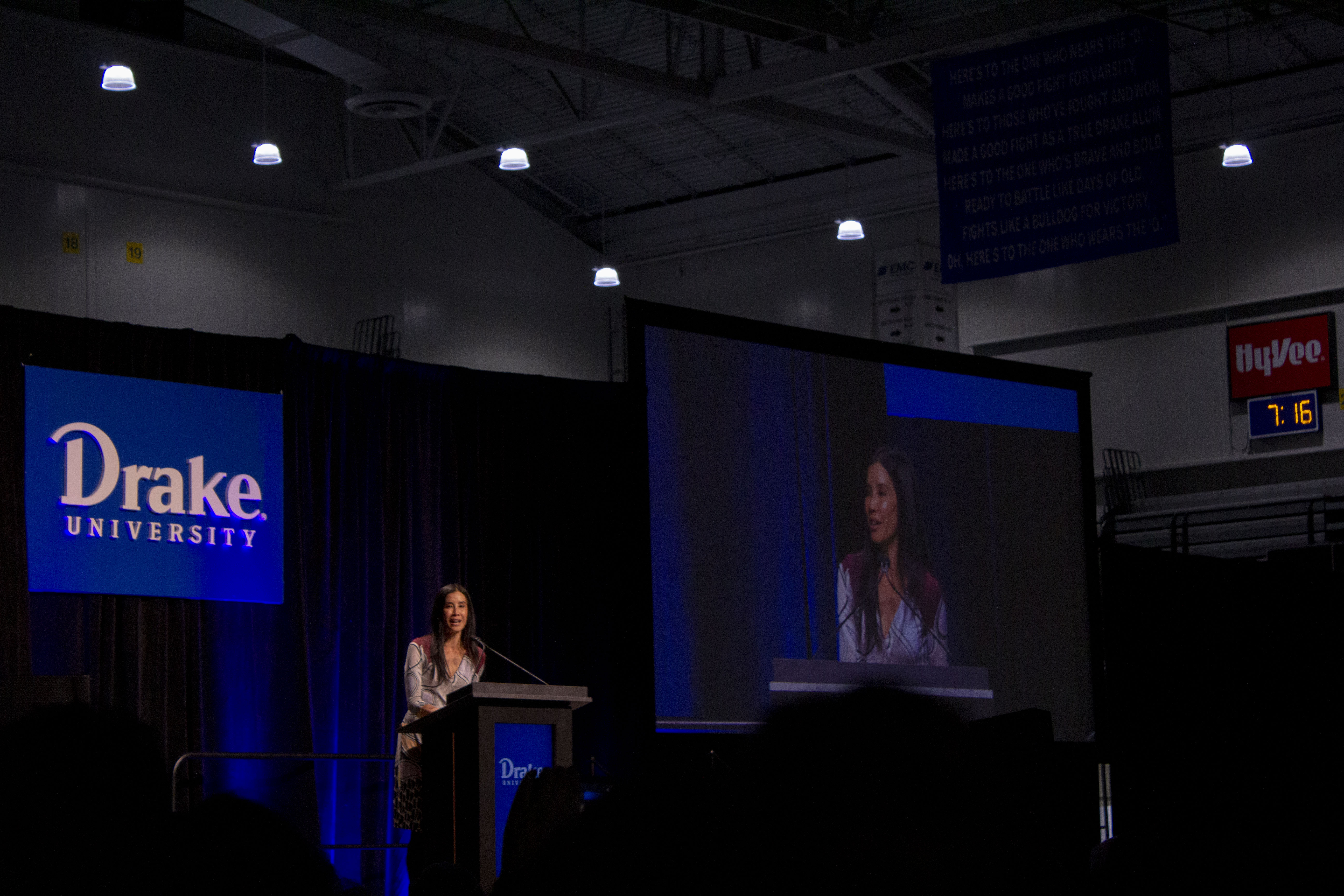Social media as a catalyst for revolution
Malek Mohamed Awny said he feels that the current waves of the social media revolution are changing the face of politics.
“Social media helps to bring a new generation of people to the world of politics,” he said.
Awny came to Drake last Wednesday to give a lecture called “Digital Revolutions? On the Role of the Media in the Arab Spring.” Awny witnessed the Arab Spring, a wave of protests in the Arab world that have taken place over the last year, while working as a journalist in Egypt.
Awny said he believes that the Egyptian people were experiencing widespread frustrations with social injustices, violations of human rights and not having basic needs. He also said that the Egyptians used social media as a catalyst of the revolution.
Social media, he said, differs from traditional media in five simple ways: its ability to appeal to a global audience, accessibility, lack of specific production skills, immediacy and impermanence.
“By its very nature, social media is decentralized,” Awny said. “It is not regulated by any centralized organization.”
Paige Johnson, a sophomore psychology major, said that she plans on studying abroad in Egypt this summer, and she also said that she learned a lot from Awny’s lecture,
“It is amazing to me how only 20 percent of people in Egypt have access to the internet, yet they still manage to use it as a means to spark an entire revolution,” she said. “I use social media all the time, and I’ve never thought about how powerful it actually is and not just a way to procrastinate doing my homework.”
Awny describes this virtual world as a “free expression space” that allows activists to build off the collective consciousness of the people and form underground movements.
“Social media helps the word spread quickly to tons of people who could congregate in days or even hours,” he said.
According to Awny, the use of social media also helps foster peaceful revolutions. He said that revolutions led by charismatic leaders are generally extreme in nature because followers tend to take on the leader’s extreme, polarized views on issues. Social media, on the other hand, allows for people to come together, discuss issues and compromise on some middle ground, which, according to Awny, “raises the bar for extreme action.”
Awny also said that some American revolutions, such as Occupy Wall Street, exist in completely different contexts. He said that social media can be instrumental in unifying people in a common movement with specific goals but cannot create the same unity in this form of social conflict.
“Social media can’t make social change but political change,” he said.
Regardless of what impact social media will continue to play in the next waves of Arab revolutions or in movements across the globe, Egypt stands in a unique position of paving the way for social media and its place in politics.
“I can’t wait to go and see what’s next for Egypt first-hand,” Johnson said. “This kind of revolution is unprecedented, and there is no way of knowing for sure what is to come.”




